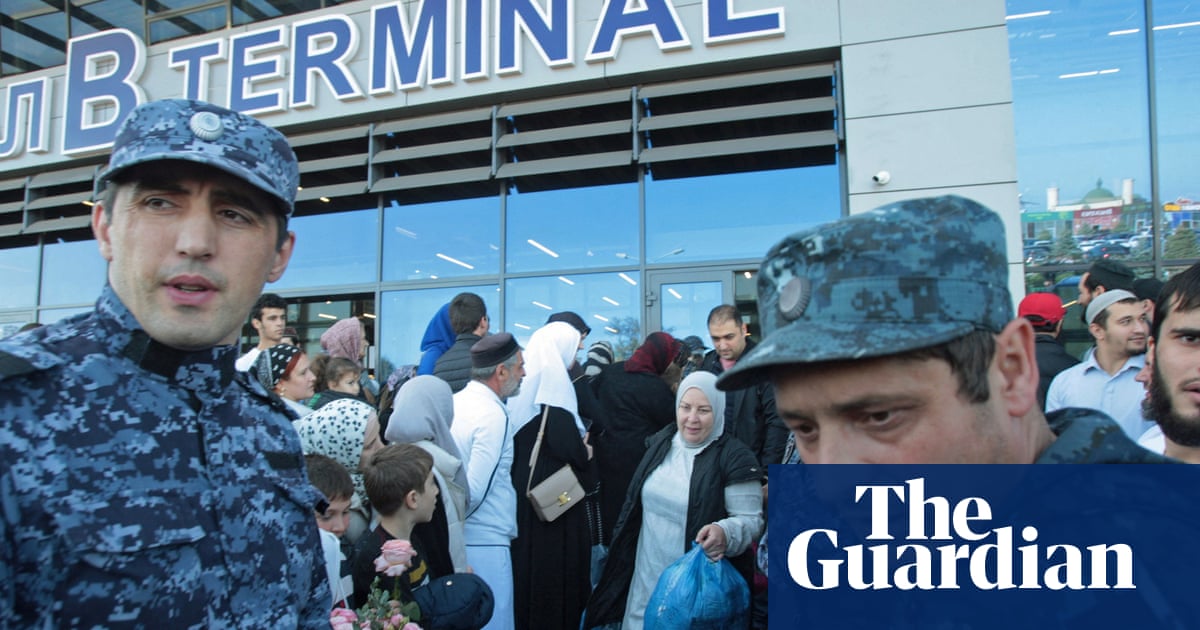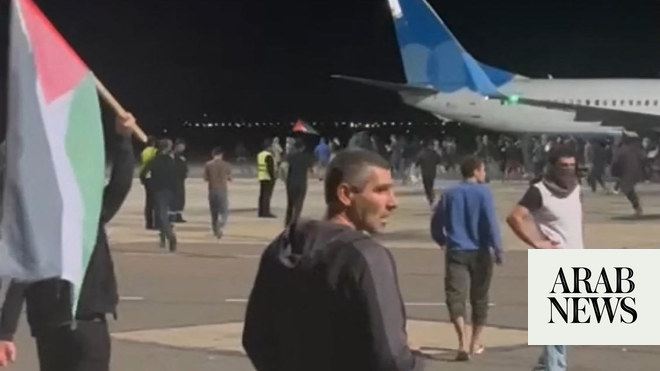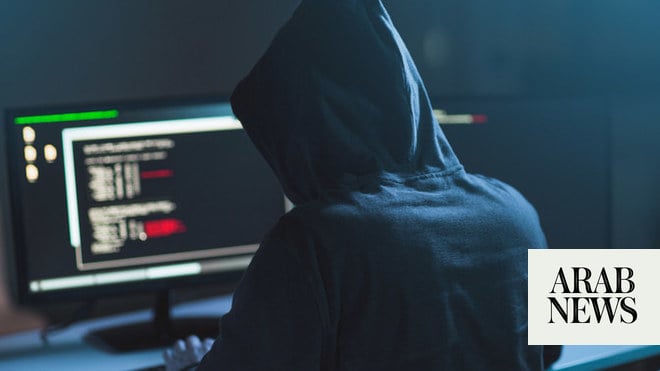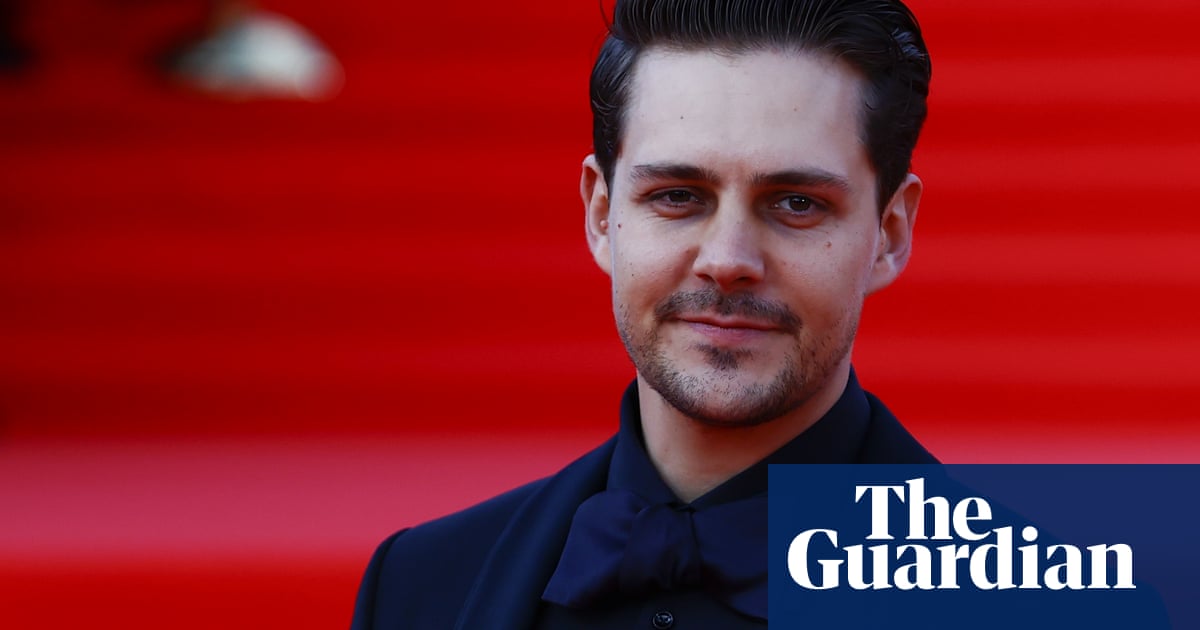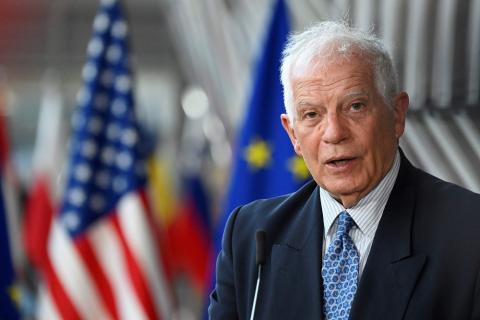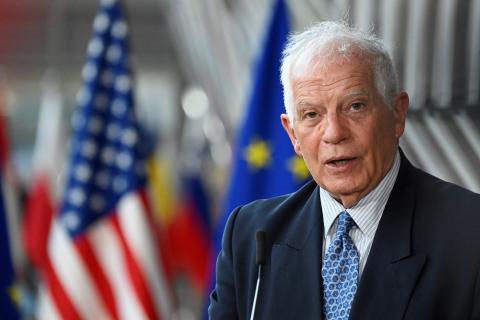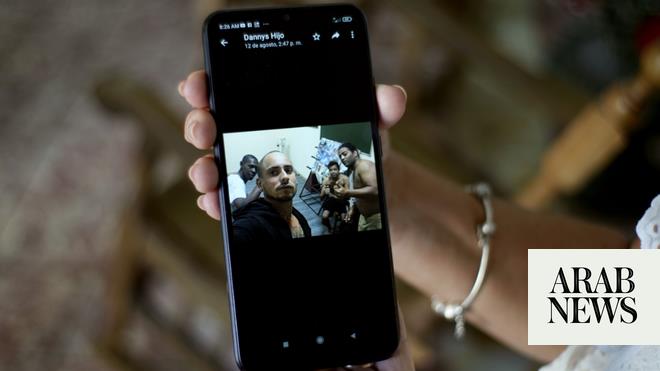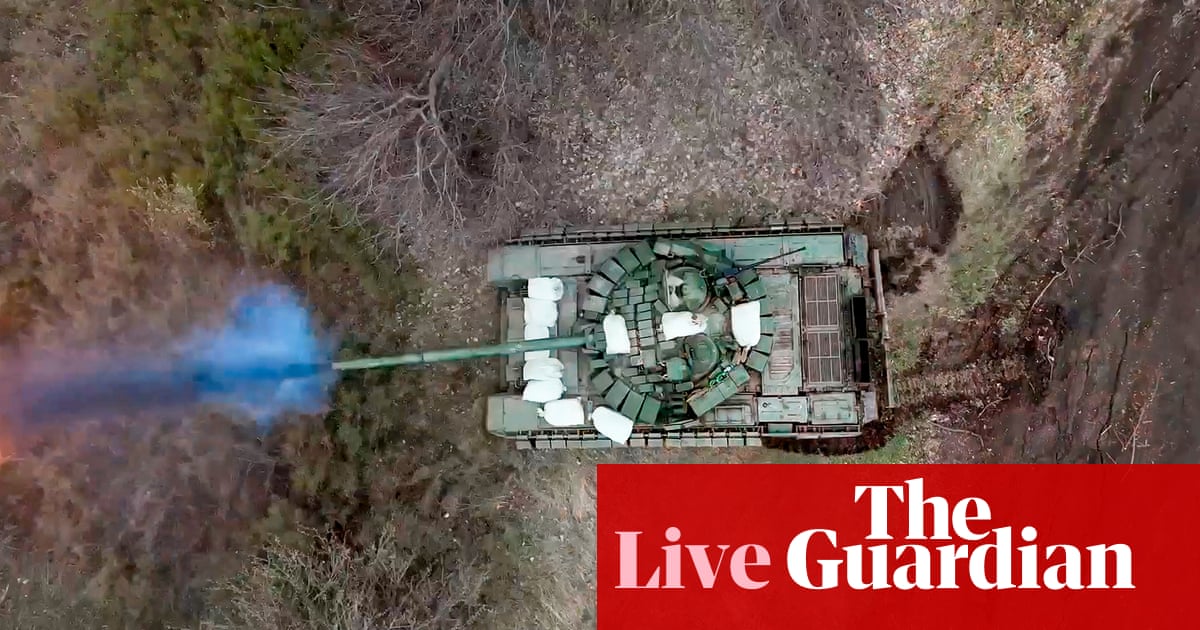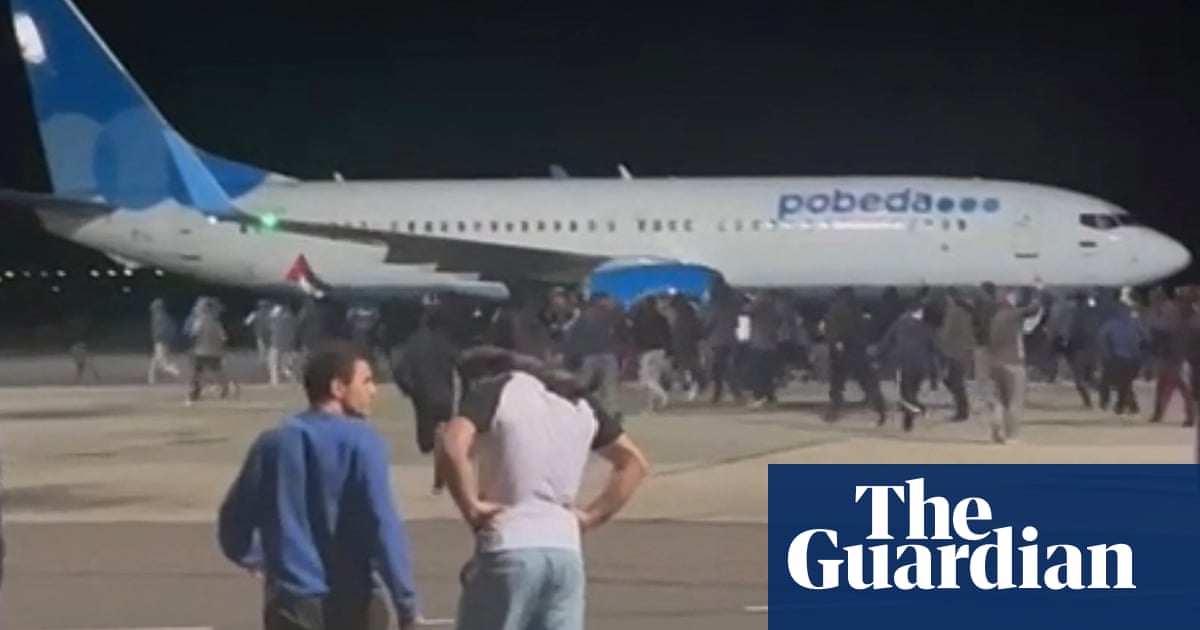
Russia has blamed Ukraine for the antisemitic riot in the mostly Muslim region of Dagestan on Sunday in which an angry mob stormed the airport in Makhachkala in search of Jewish passengers arriving from Israel.
Maria Zakharova, the Russian foreign ministry spokesperson, said on Monday that the riot was the result of a “provocation” orchestrated from outside Russia, with Ukraine playing a “direct and key role”.
Earlier in the day, Dmitry Peskov, Vladimir Putin’s spokesperson, claimed the unrest was “the result of external intervention, including external information influence”.
Neither Zakharova or Peskov provided evidence to support their claims of outside interference.
Peskov also told reporters that Putin would hold a meeting with his top officials on Monday evening to discuss “western attempts to use events in the Middle East to split Russian society”.
Video posted to social media on Sunday showed hundreds of young men, some carrying Palestinian flags or placards denouncing Israel, storming on to the airport and climbing on to idling planes, attempting to break through the windows.
One Israeli passenger described how an angry mob interrogated him after landing at the airport.
“They entered our bus and asked each of us whether we were Muslim or Jewish … I answered that I was Muslim … Luckily, they believed me. If they had given me a serious interrogation, they would have realised that I was Israeli,” the passenger told the Meduza news website.
Russia’s interior ministry said on Monday that 60 people had been arrested after the riots.
Russian officials and state-affiliated media criticised Telegram channels – specifically one called Utro Dagestan, which has more than 65,000 subscribers – for their role in organising the rioters on Sunday. In doing so, many sought to argue that the riots were inspired by foreign “enemies” and were not an expression of homegrown antisemitism in Dagestan.
RT, a state-funded news agency that coordinates its coverage with Kremlin officials, released a report on Utro Dagestan on Monday, claiming that the channel’s anonymous administrator, who it said had been detained in Makhachkala, was linked to Ilya Ponomarev, a Kyiv-based former Russian official who opposes the Kremlin. Ponomarev said on Sunday that he had had no control over the channel for more than a year.
Late on Monday, Telegram said it had decided to ban Utro Dagestan for “inciting violence”.
Russia has blocked a number of popular social networks, including Facebook and Instagram, but has not cracked down on Telegram, which remains a popular messaging app and has channels that allow businesses, popular figures, and protest movements to broadcast messages to the public.
Thousands of users in southern Russia reported outages on Telegram on Sunday, in particular in regions neighbouring the North Caucasus such as Krasnodar and Rostov.
Oleg Matveychev, the deputy head of a parliamentary committee on information policy and IT, pushed back against reports of a broad ban on Telegram, but said it was possible that law enforcement would specifically target channels promoting the riots.
Several other demonstrations in support of the Palestinians and against Jewish people have also taken place in cities across the Caucasus in recent days despite strict laws that limit public protests.
On Monday, a group of women in the mountainous region of Karachay-Cherkessia said they were protesting because “they did not want to live alongside Jews”.
The anti-Jewish demonstrations come against the backdrop of Putin taking a pro-Palestinian stance in Israel’s war in Gaza, a position that aligns the Kremlin with its ally Iran in what analysts have described as a growing global divide between east and west.
Last week, a senior Hamas delegation travelled to Moscow to meet Russian officials in the organisation’s first high-profile international visit since it launched a raid in southern Israel on 7 October. Israel criticised the visit, saying inviting Hamas “sends a message legitimising terrorism”.
Hosting Hamas in Moscow but not condemning the group’s killings of civilians in Israel, Putin “might have given the green light to some elements in the Caucasus that the hunting season [against Jews] is on”, said Pinchas Goldschmidt, who served as the chief rabbi of Moscow for nearly 30 years until he left the country last year because of his opposition to the war in Ukraine.
“In a country where everything is tightly controlled by the government, it is inconceivable that these riots were not instigated or directed by governmental structure,” Goldschmidt said.
Goldschmidt, who has previously urged Jews to leave Russia while they still can, added that as Israeli-Russian ties deteriorate, “the situation for Jews will get worse in Russia”.
“We may see similar riots in other places in the country,” he said.
While the Russian empire and its Soviet successor had an extensive history of state-sponsored antisemitism, Putin has promoted himself as a friend of the Jewish people and cultivated Russian-Israeli relations.
However, the decline in the relationship between Moscow and Tel Aviv over the past year and a half has raised fears over a new rise in antisemitism inside Russia.
“For a long time, any form of antisemitism was prohibited in the political and media spheres,” said Ilya Yablokov, a lecturer at the University of Sheffield, who has written about antisemitism in Russia. “But since the war in Ukraine, we have seen some of those taboos disappear. The war in Gaza has only accelerated this trend.”
Yablokov pointed to a string of recent statements by senior Russian officials that were widely considered offensive to Jews. In one of them, the country’s foreign minister, Sergei Lavrov, recycled an antisemitic conspiracy theory that claimed that Adolf Hitler “had Jewish blood.”
In Makhachkala on Sunday night, Yablokov said, pre-existing anti-Jewish sentiments appeared to have been stoked by growing anti-Israeli sentiments aired on state media.
“Previously, people thought that protesting against Israel would go against the mainstream, but now many feel the Kremlin will be more permissive,” he said.
Alexander Verkhovsky, director of the Sova Centre, a Moscow-based non-governmental group that monitors extremism, said Sunday’s antisemitic riot “changed our understanding of antisemitism in Russia”.
“Attacks against Jewish people and material objects – schools, synagogues, cemeteries – were extremely rare in Russia,” he said. “The question now is whether antisemitic protests spread beyond the Muslim-majority Caucasus.”




